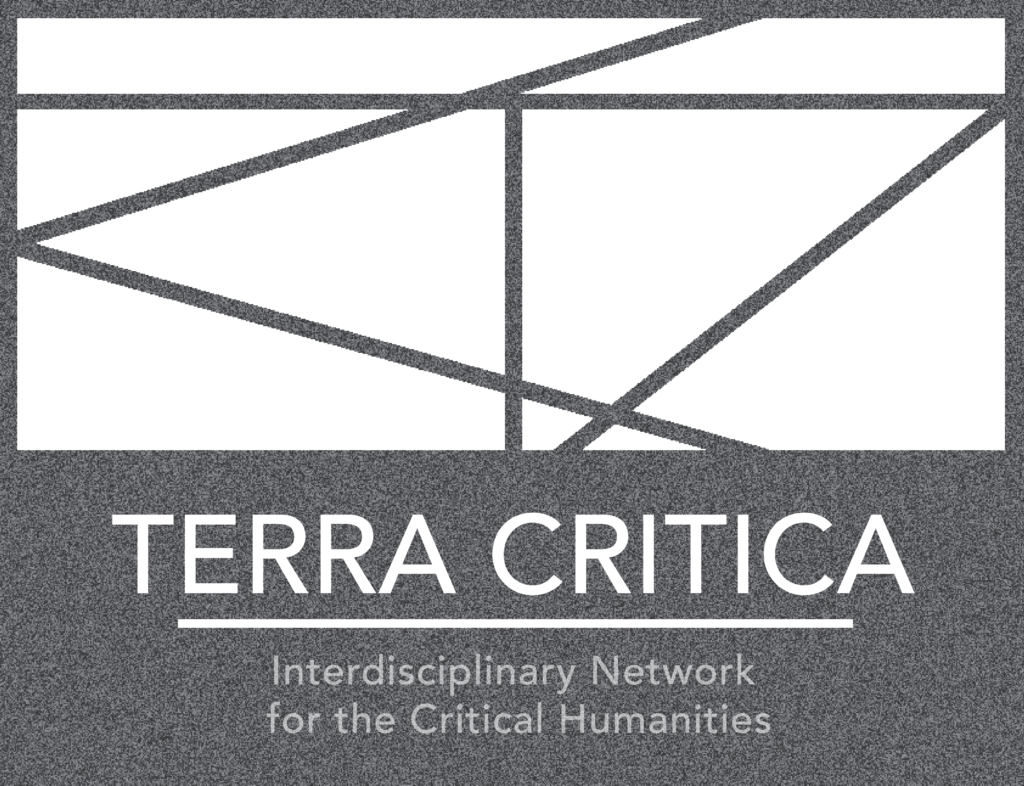Terra Critica is an international and interdisciplinary research network in the critical humanities. It provides different platforms that bring together scholars specializing in critical and cultural theory, as well as practitioners in education, activism and the arts. The network aims to reexamine critical theory and practice under the conditions of the 21st century – in light of our terran existences that are globally entangled across flows of capital, people, and ideas. Given the persistent need to decolonize knowledge and institutional practice, as well as the fact that we are living in interdependent ecological and economic systems with growing inequalities, our critical vocabularies and practices also have to be refined and revised.
Terra Critica strives to strengthen the Critical Humanities as a crucial site for such critical analyses of our present. The network organizes regular meetings with its core members to provide a platform for discussion and publication. In collaboration with Casco Art Institute, Terra Critica also holds a ReadingRoom in Utrecht, the Netherlands, to create an open and inclusive space for substantial and meaningful conversations in the humanities, the arts and beyond.
The network was initiated by Birgit Mara Kaiser and Kathrin Thiele in 2012, with a group of core members and a wider circle of participants to the regular meetings. Its activities have been generously supported by different funding bodies and universities.
The humanities are currently readjusting to their tasks in the globally entangled world of the 21st century – a century that inherits the various deconstructions of humanism, colonialism, sexism, and racism, but a century that also struggles with persisting structures of racial oppression, deepening social inequality, morphing nationalisms, militarized borders and anti-immigration policies. The practice of critique as the capacity to diagnose social power-formations, to eschew dogmatisms and to provide tools for emancipatory transformations seems more urgent than ever. When global processes are presented either as inevitable – as inescapably demanded by an economic system or as beyond regulation and steering due to systemic, ecological over-complexity – or as threatening to the chimera of national autonomy, it is important to find ways to critically engage and refuse these powerful narratives and to invent practices, lines of flight, affirmative modes of refusal.
Critique in that sense has always been a crucial element of the work done in the humanities. And despite the economic pressures put on secondary education and independent research in general and on humanities research in particular, the humanities continue to be a site where critical analyses of contemporary social realities are conducted, and where its techniques and future-oriented potentials are taught.
In an economically, ecologically, culturally and politically co-dependent and entangled world – to which border-controls and neoliberal nationalism are invalid responses – it is difficult, however, to sustain the traditional image of critique: the calm distancing by way of setting apart and judging. Given our awareness of multifaceted, multispecies connectedness and global entanglements, we realize that our evaluations and assessments, as well as our actions, (must) come about from within the processes of on-going change and differentiation, in continuous feedback-loops and multilateral negotiations. Practicing critique as laying bare the conditions of possibility on which then a ‘better’ programme will be built, a more justified normative order, falsely arrests the continuous feedback between the assessments and what is assessed, and reduces these complex and never inconsequential entanglements. Thus, our practices and images of critique need to be rethought: What is asked of us today is a critical practice that affirms the situated nature of any diagnosis, yet dares to answer to the needs of terra critica: a world in critical condition, whose planetary connectivity calls for critical intervention and creative responses, neither relativistic nor universal, but with sustainable futures in view.
If you would like to know more about the project, scroll up and click the Interview tab above or download here.


